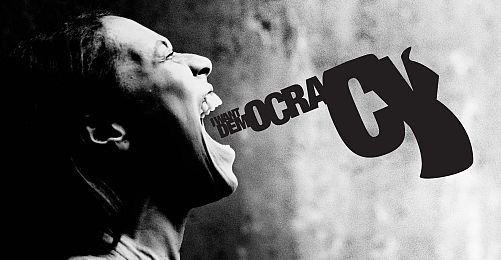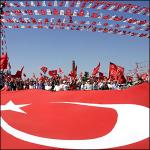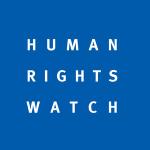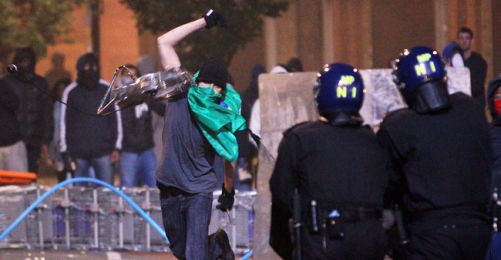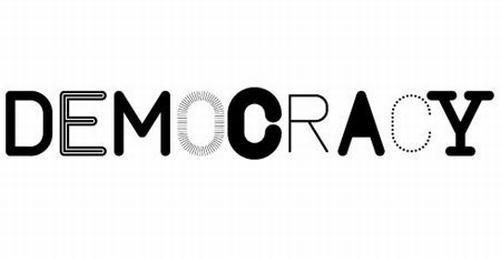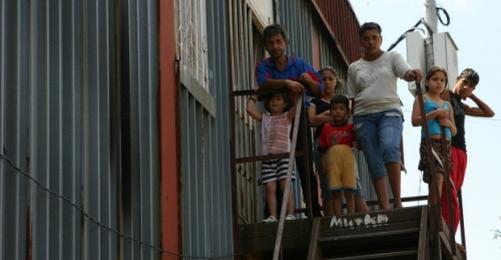An academic paper which I have co-authored with Dr. Lauren McLaren will be published in the next edition of the Government and Opposition review. In our study we have focused on three countries; Spain, Greece and Turkey that have historically shared common social and economic indicators up until to the last quarter of the 20th century. We have asked this question: Why has Turkey not developed to become as democratic as the other two countries?
Having made use of parts of previous studies, we, on the other hand, have pinpointed two major factors lying behind the differences between these countries regarding democratization: Experience with authoritarian rule and elite settlement or convergence.
The process of making a constitution has had a profound effect on the different democratization experiences of the three countries mentioned. In other words, the reason why Turkey stands at a different level of democratization presently is the great dissimilarity between the Turkish experience of the drafting of 1961 and 1982 constitutions and the constitutions devised by the other two countries following their periods of military rule.
Taking a cue from this comparison and arriving at some "lessons" for today is quite possible simply because the real factor behind the "quality" of a democracy is not dependent on the content of the constitution but the real determining factor is how it was developed. Despite the fact that the content is important too, Turkey at least will not be a more democratic country in the absence of any consensus between the ruling Justice and Development Party (AKP) and the main opposition party The Republican People's Party (CHP) in creating a new constitution.
Following the death of Franco in 1975 Spain has experienced a swift transition to democracy which however has not proved to be a smooth ride as the army tried its hand for a coup d'etat in 1981.
Both during the civil war (1936-39) and the following era of dictatorship, there has been a heavy toll for the masses; hundreds of thousands people have perished and all political movements have been crushed. This outcome had made several democratic rights a vital issue.
In managing the transition process to democracy, King Juan Carlos appointed Adolfo Suarez as Prime Minister, and the Socialist and Communist leaders arriving at a consensus with him have been the critical actors of the process.
After the elections for a constitutive assembly to make a constitution, a committee of 7 members named Ponencia had started to work on a draft.
Suarez's Union of Democratic Centre (UCD), winning the plurality of the seats in the assembly, was represented by 3 members in the Ponencia. The Socialists, Communists, the Catalan nationalists and the Franquist right had each one seat.
At a point the negotiations came to a standstill. The Socialist Party retreated from the talks as a draft resolution prepared by the right on the relationship between the state and the church was received by a backlash by the left.
Despite the fact that UCD and the Franquist party had the power to pass any resolution, the possibility that the legitimacy of the new regime might be undermined prompted the UCD and the Socialist Party to come together to find a solution.
The next morning it was announced that a consensus had been reached on contentious issues.
The warm relationship between Suarez and the Socialist and the Communist parties' leaders also had a positive impact on the process.
In Greece the transition to democracy following the military junta's handing of power to Constantine Karamanlis has not proved to be as "classy" as in Spain, but it has been a success anyway.
First of all, very much like the Spanish experience with the military rule, the Greek one had made democracy vital for both political elites and the masses. However, despite the aspiration for democracy, Karamanlis's quasi "one man rule" during the transition created a problem of legitimacy from the opposition's standpoint.
As a reaction to Karamanlis's direct penning of the constitution draft; severe objections raised from the centre left PASOK, other parties from centre and the Communist Party. Andreas Papandreu, leader of the PASOK, claimed that the constitution would be discarded after they come to power.
However PASOK has become more moderate over time and has managed to become aligned with the establishment. And when they came to power in 1981, they did not put in fact what they preached.
In Turkey on the other hand; the military rules of 1960-61 and 1980-83 have passed relatively moderately due to less violence they brought about compared with the Greek and Spanish totalitarian regimes. In a rather paradoxical development, this relatively moderate experience has caused democracy not to take roots.
The bottom line as democracy has neither become vital nor has it been possible for the political leaders to internalize the notion that sharing a set of common values would facilitate the process of problem solving more effectively when they stayed within the democratic framework.
In short if the new constitution becomes the output of the ruling AKP, the regime will not achieve any success that is worth any value. (BC/IC)





